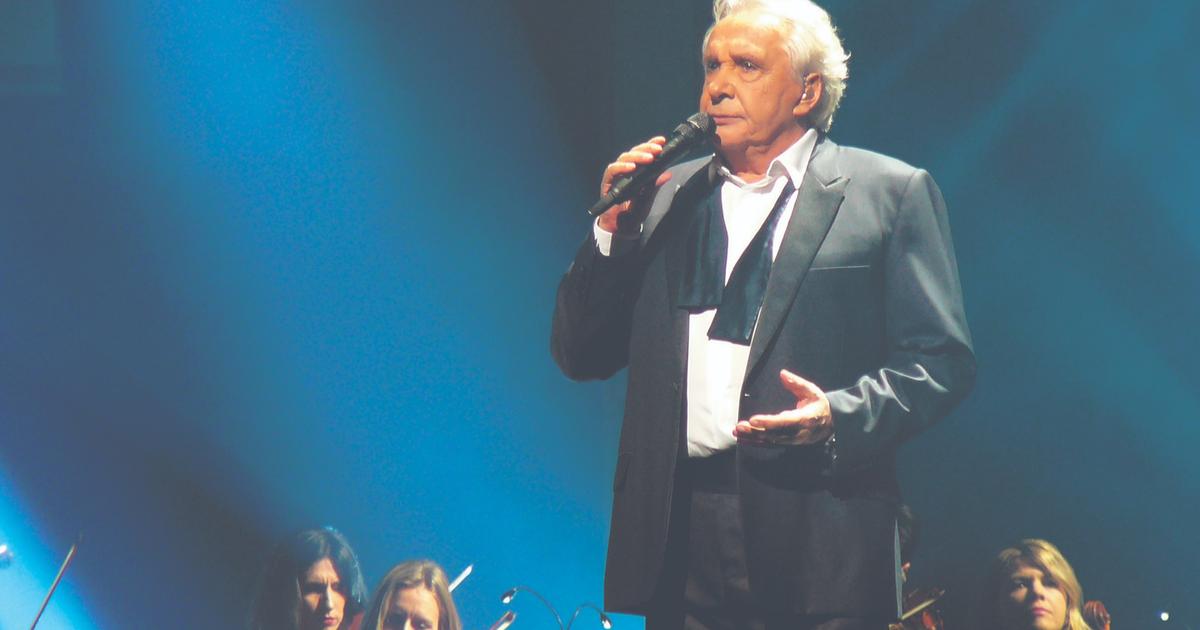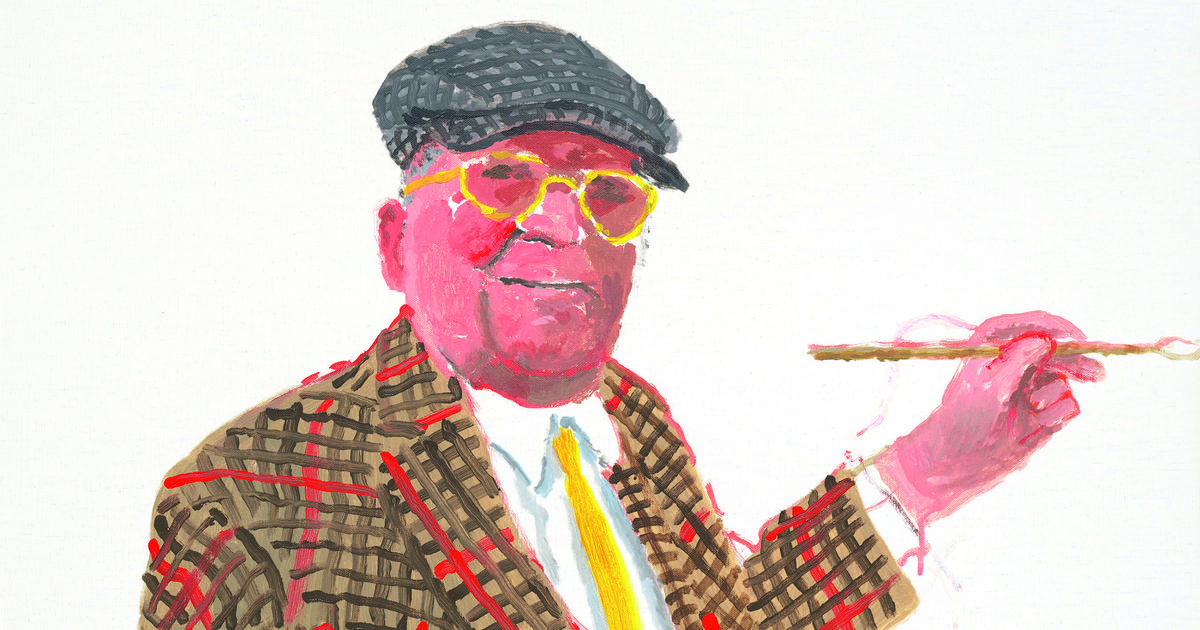March 2022. Saturday 19, Father's Day.
Marwan is in New York enjoying a trip with his mother.
They have spent a perfect day, practicing the art of tourism on a day that is not too cool and eating in a good restaurant.
The musician has on his agenda to visit a guitar shop that has been recommended to him located on Rivington Street, in Manhattan.
The same is allowed a whim that he can debut on his next tour.
But just as he leaves the store, his world stops: a bicycle traveling in the wrong direction takes him ahead of him.
His body hits the asphalt and he feels a very strong pain in his right arm.
A few minutes later, he takes off his jacket and finds that his elbow is smashed.
A thought immediately overwhelms him: "I'll never be able to play the guitar again."
More information
Iván Ferreiro: "Musicians are censored more for their lyrics than politicians for their atrocities"
One year later, March 2023, Marwán Abu-Tahoun Recio (Madrid, 44 years old) is telling the story in the living room of his stylish renovated apartment in the center of the capital.
He has sat down on a sofa and has placed a couple of cushions under the damaged limb.
Later, when he stands up to pose for the images illustrating this article, he apologizes to the photographer for the static on his arm.
“The one who ran over me came up, asked about my condition and then left.
The people who were there told me to report it, but I didn't react.
At that time, he was in a hazy mind.
He was gone… ”.
He had six fractures, five in the elbow and one in the arm.
He went to a New York hospital for a first cure and took the first plane to Spain, where he was operated on (“in public health, on October 12”).
Six hours of intervention.
The doctors have reconstructed his elbow by placing plates and prostheses.
He left the operating room with his arm completely stiff.
He had to work hard to break the adhesions.
After nine months of rehabilitation, the conclusion is that he will never be able to get back to where he was before the accident.
He has lost 30% mobility.
It's been 12 months since the operation and his arm still gets sore when he does any activity.
How to play the guitar.
“It has been the most terrible year of my life,” he says.
And he explains: “The damaged arm is the right one and I am right-handed.
In the first few days, I set myself a goal: to be able to fend for myself to wash or brush my teeth.
If he couldn't do that, he had a problem.
After the rehabilitation I have achieved it.
I can do more or less everything…with a posture like that.”
Life goes on and Marwán, an expert in standing up against adversity, has managed to reverse the situation.
“Now I am no longer going to play the guitar in concerts.
I've released it and I'm a better artist.
I can express myself much better.
I take the microphone, I jump, I run, I go from side to side, I vacillate with the people.
Before I was with the guitar and the microphone,
all too static.
It is curious, because I have suffered and I continue to suffer with this, but I have grown as an artist like a beast”.
Another image of the musician Marwán taken at his home in Madrid.
claudio alvarez
This will be the new Marwán, the one after the accident, who celebrates his 20-year career in 2023.
He does it by re-recording his songs in duo format: with Izal, Ismael Serrano, Funambulista, Luis Ramiro, Nach... The first previews of the album can already be heard: with Mikel Izal (Mi paracaída
)
and with Miguel Poveda
(The equation).
In the coming months, other songs will trickle down, until the album is completed around October.
Immediately, he will go on tour.
Two decades already of an artist built on a foundation of hard work.
Marwan's father was born in a Palestinian refugee camp.
He managed to move to Spain, where he met a woman from Soria called Nieves Recio in Madrid.
From that love, Marwán was born in 1979, and he grew up in the popular Madrid neighborhood of Aluche.
“The eighties were hard in the peripheral neighborhoods of the capital, with heroin hitting hard and the first years of AIDS.
I remember my parents constantly warning me not to touch any syringe that I found on the street.
And in the Aluche park there were many, ”he explains.
He suffered episodes of racism, due to his name and his physical appearance, inherited from his father.
He recounts a terrible one, which marked him: a beating that a teacher gave him.
“I had already endured racism from that teacher on several occasions.
I had just turned 11 years old.
I have the images on fire in my memory, because it was super traumatic for me.
A classmate had made a clay turtle and when I moved it, I broke one of its legs.
The professor came like a basilisk and screaming.
He pushed me violently.
I told him: 'What are you doing, asshole?'
And he began to beat me and drag me on the ground.
Marwan had a Moroccan partner.
"I was very innocent: he told me what racism was."
They made fun of the two calling them “Moors”.
The future musician did not understand: "I thought there was something wrong with me."
He started to develop an extreme personality: either he was very sensitive or he was especially gross.
The professor came like a basilisk and screaming.
He pushed me violently.
I told him: 'What are you doing, asshole?'
And he began to beat me and drag me on the ground.
Marwan had a Moroccan partner.
"I was very innocent: he told me what racism was."
They made fun of the two calling them “Moors”.
The future musician did not understand: "I thought there was something wrong with me."
He started to develop an extreme personality: either he was very sensitive or he was especially gross.
The professor came like a basilisk and screaming.
He pushed me violently.
I told him: 'What are you doing, asshole?'
And he began to beat me and drag me on the ground.
Marwan had a Moroccan partner.
"I was very innocent: he told me what racism was."
They made fun of the two calling them “Moors”.
The future musician did not understand: "I thought there was something wrong with me."
He started to develop an extreme personality: either he was very sensitive or he was especially gross.
At the age of 15, he was given his first guitar and began to develop his creativity.
The first concert he saw in his life was one of Barón Rojo at the Aluche festivities, and he debuted on guitar with a Metallica song.
His was
heavy.
Until he discovered Silvio Rodríguez, Serrat, Sabina, Aute.
He wanted to be like them.
His successful singer-songwriter career had begun.
The venue Libertad 8, in Madrid, was like his home: there he began acting and there he met Ismael Serrano, Pedro Guerra, Jorge Drexler... singer-songwriters from a previous generation.
He began to add a young clientele who tuned in to his songs about a man reeling from the capricious designs of heartbreak.
Also with his more social proposals, with his commitment to progressive ideas and in defense of Palestinian rights.
In these 20 years, Marwán has published five albums that, having released many units, do not come close to his stratospheric numbers as a poet.
“It bothers me that people think I'm a poet who sings;
I am a musician who writes poems.
I have been in music for 20 years and my first book of poems came out 10 years ago.
I write many poems, but my identity is that of a musician, ”he emphasizes.
However, he has shipped 200,000 copies of his four books, making him one of the biggest sellers of Spanish-language poetry today.
This circumstance has brought him criticism from literary spheres, which do not digest the success of someone outside his world.
For them he composed
5 grams of resentment.
“This song is for all the idiots who shot their contempt at my windows”, the song starts.
For a while, people who attacked him on social media would send the song.
“They responded with more insults, so I already blocked them,” he says with a smile.
“Any successful career is going to have detractors.
We have all written bad poems, but I also have poems that are very good.
And those have made many people happy, ”he defends himself.
Marwán the first time he performed at Libertad 8 (a Madrid venue where Pedro Guerra, Ismael Serrano and Jorge Drexler started).
It was in November 2002. Photo courtesy of the musician
He says that he already has new lyrics, some about love misfortunes, despite the fact that he has shared his charming house with his girlfriend (a doctor) for years.
“Having a material or sentimental accommodation does not mean that you do not have your demons.
In moments of happiness, good songs are also composed, or you can look back, ”he argues.
Precisely what he fears the most in this sense is artistic blockage.
The first time he went to therapy, he came for that reason.
“Then I went for other things.
I have done a lot.
You have to know our ghosts, know where they come from and try to tame them.
It is important to know the brightest we have and the darkest, and also the most hidden.
The great discovery of life is to find the part of life that you consider to be bad and does not have to be bad.
We are only going to evolve as a species if we do therapy;
if not, we are going to continue being barbarians ”, he clinches while he touches his injured arm with his left hand and leaves it resting on the cushions.

/cloudfront-eu-central-1.images.arcpublishing.com/prisa/FNAIXFC55RGIHPSPUWRJUWMNC4.jpg)





